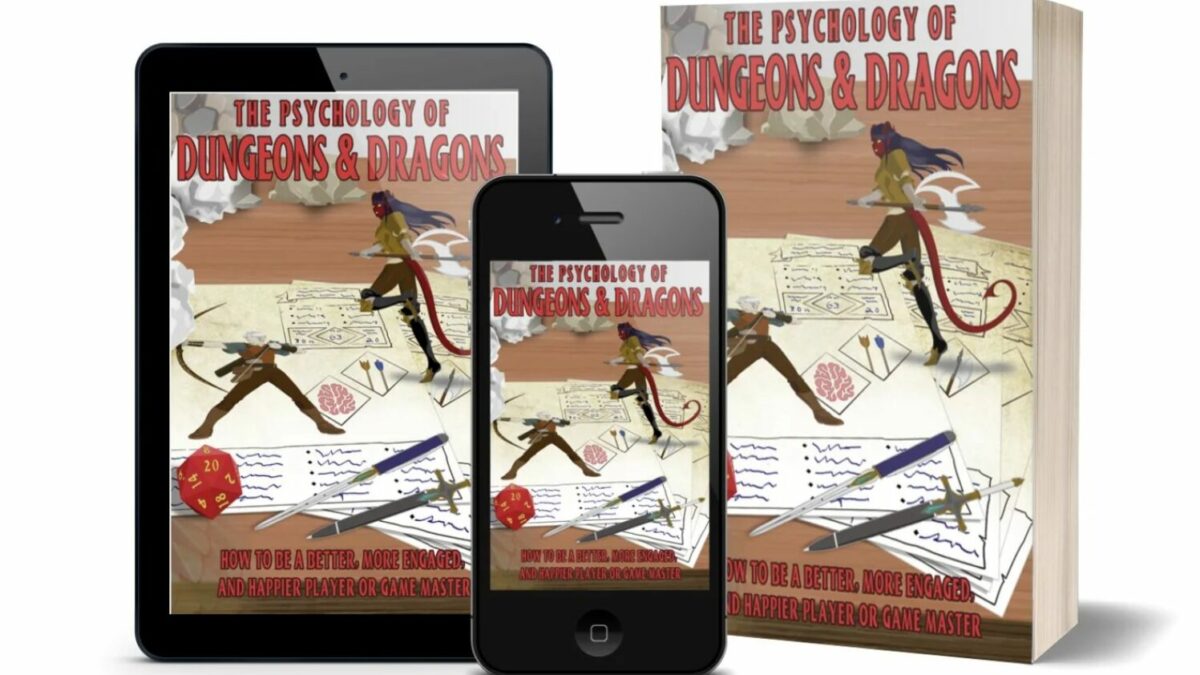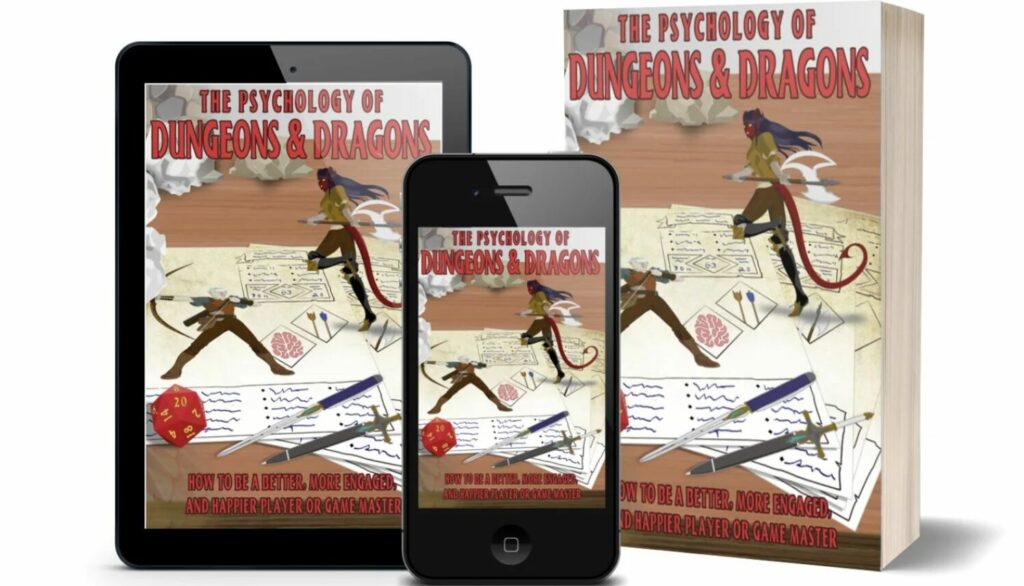
My newest book about the psychology of the tabletop role-playing game Dungeons & Dragons is now out! You can order it pretty much wherever you buy books, such as these online retailers:
- Amazon.com
- Amazon.co.uk
- Barnes and Noble
- Straight from the publisher, Leyline Publishing
- Bookshop.org

I’m super proud of this new book. It follows much the same model as my first book, Getting Gamers: The Psychology of Video Games and the People Who Play Them in that each chapter examines a question I find interesting about the psychology behind why games are made as they are, why we behave as we do when we play them, and why they’re marketed and sold as they are. Turns out this all applies to tabletop role-playing games like Dungeons & Dragons, which, like video games, I’ve been playing and thinking about since the early 1980s!
Here’s the table of contents from the book:
- Chapter 1: Why Do We Feel So Heroic While Playing Dungeons & Dragons?
- Chapter 2: Why Is the Open-Ended Freedom of Dungeons & Dragons So Appealing?
- Chapter 3: Why Do We Love Feeling Important to Both Real and Imaginary People?
- Chapter 4: How Does Dungeons & Dragons Pull Us into Imaginary Worlds?
- Chapter 5: Why Do Some Players Hoard Stuff Like They’re Dragons?
- Chapter 6: Why and How Do We Identify with Our In-Game Characters?
- Chapter 7: What Gets Us to Role-Play and Why Should We Care?
- Chapter 8: How Do Players Judge Alignment and Morality?
- Chapter 9: What Do We Get Wrong About Unlucky Dice and Natural 20s?
- Chapter 10: How Do We Deal with So Many In-Game Choices?
- Chapter 11: When Do Players Work Together Best?
- Chapter 12: Which is Better: Playing In-Person or Online?
- Chapter 13: Does Helping Create a Game World Make It More Fun to Play In?
- Chapter 14: Why Do We Escape into Imaginary Worlds?
- Chapter 15: Does Playing Dungeons & Dragons Turn Kids into Devil Worshipers?
- Chapter 16: How Does Playing Dungeons & Dragons Make Us Better People?
Like my previous books, the answers in each chapter are research-based, presenting references to academic work in a way that’s fun, humorous, and communicated through stories drawn from both the history of the game and my decades of experience playing it. And yeah, there are jokes hidden in the endnotes. I’m looking at one right now.
Each chapter then concludes with two helpful lists: Things What You Learned in this Chapter and How to Apply This Chapter to Your Game. These are relevant to both players and game masters, because the book is written for both.
Again, I’m super proud of this book and hope you enjoy it!